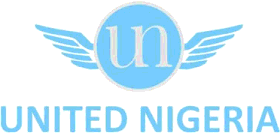 United Nigeria Airlines Expands Domestic Reach with Addition of Leased Airbus A320
United Nigeria Airlines Expands Domestic Reach with Addition of Leased Airbus A320
United Nigeria Airlines has taken a significant step in bolstering its operational capacity by welcoming a leased Airbus A320 to its fleet, sourced from Bulgaria’s Fly2Sky Airlines. This move underscores the airline’s commitment to strengthening its footprint within Nigeria’s dynamic aviation market, while also positioning itself to adapt to the evolving demands of the region’s growing passenger base.
The arrival of the Airbus A320 is not simply an addition of hardware; it represents a deepening partnership between United Nigeria Airlines and Fly2Sky Airlines—a collaboration that highlights the increasing trend of African carriers engaging in strategic alliances with international lessors. For United Nigeria Airlines, this marks a vital phase in its ongoing expansion strategy, supporting its vision to deliver reliable, efficient, and comfortable air services throughout the country.
With the new A320 now operational, United Nigeria Airlines is poised to offer enhanced connectivity on its domestic network. The aircraft’s greater capacity and improved fuel efficiency are expected to translate into more frequent services, better schedule flexibility, and a superior travel experience for passengers. Such improvements are crucial as Nigeria’s air travel sector continues to rebound and expand, driven by an increasingly mobile population and renewed interest from both business and leisure travelers.
This aircraft addition comes as part of a broader fleet modernization plan. United Nigeria Airlines is also preparing to gradually introduce Boeing 737-800s into its operations. The planned expansion and diversification of the fleet will allow the airline to better respond to fluctuations in passenger demand, as well as to explore new routes and increase frequencies on existing ones. For the Sub-Saharan African aviation landscape, this is a signal that regional carriers are ready to compete with international standards, leveraging advanced equipment to meet passenger expectations and regulatory requirements.
The timing of this move is particularly important. As Nigeria’s economy diversifies and intra-regional trade grows, there is rising demand for safe, reliable, and affordable air transport. The strategic leasing of the A320 offers immediate capacity gains without the long lead times and capital outlay associated with outright purchases. This agile approach to fleet management is becoming increasingly common among African airlines, enabling them to remain responsive in a market characterized by both rapid growth and evolving regulatory frameworks.
For industry stakeholders, the expansion of United Nigeria Airlines’ fleet brings several implications. Increased seat availability and the introduction of more modern aircraft can drive competition, potentially leading to better fares and improved service quality across the market. In turn, this can stimulate further demand for domestic tourism, business travel, and regional connectivity—factors that are essential for the continued development of Nigeria’s aviation infrastructure and its broader economic ambitions.
The partnership with Fly2Sky Airlines also illustrates the growing confidence of international lessors in the African aviation sector. Such collaborations are vital for knowledge transfer, technical support, and the sharing of best practices—elements that will be critical as African carriers pursue future fleet renewals and operational upgrades. Moreover, this dynamic fosters a more interconnected aviation ecosystem, where African airlines are increasingly viewed as valuable partners on the global stage.
As United Nigeria Airlines prepares for the phased introduction of its Boeing 737-800s, the carrier is expected to further refine its route network and enhance its operational efficiency. This will not only improve the passenger experience but also support the airline’s ambition to become a leading player in both the Nigerian and broader West African markets. The ongoing fleet modernization underscores a broader industry trend: African carriers are embracing innovation and global partnerships to drive growth and deliver world-class air travel options.
Looking ahead, the integration of the Airbus A320 is likely to encourage other regional airlines to explore similar fleet upgrades and cross-border collaborations. As demand for air travel in Africa continues to soar, operators that prioritize flexibility, reliability, and customer experience will be best positioned to capitalize on new opportunities—both within domestic markets and across the continent’s expanding intra-African network.
Ultimately, the arrival of the leased A320 is more than a milestone for United Nigeria Airlines; it is a signal to the industry of the renewed momentum in African aviation. For professionals in the sector, it is a reminder that strategic alliances, agile fleet management, and a commitment to operational excellence are key ingredients for navigating the shifting landscape of air transport in Sub-Saharan Africa.
